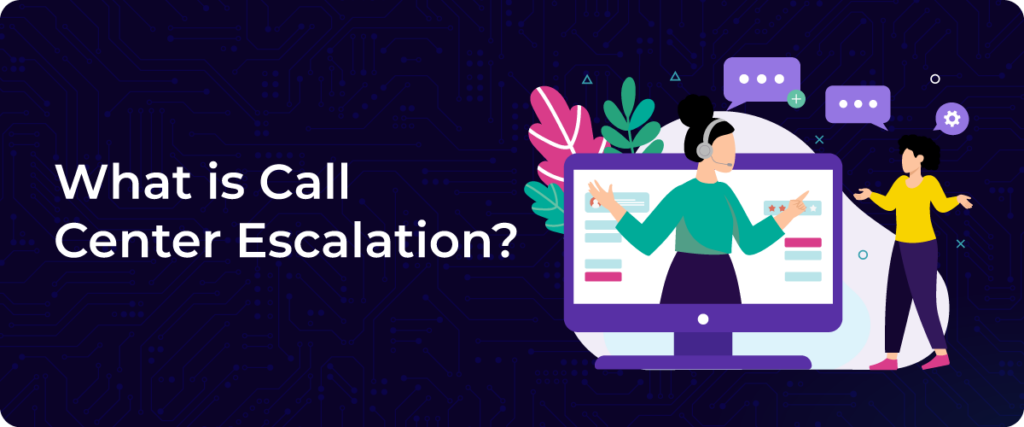Did you know 95% of customers share bad experiences, but 87% share positive ones? Companies like Zappos, with their hassle-free returns, and First Direct, offering under-a-minute call handling, show how exceptional customer service creates loyalty.
As automation will handle 95% of interactions by 2025, mastering customer service principles and strategies will be the key to standing out in a competitive market. The blog shall follow the agenda below:
1. Understanding Customer Service Principles Fundamentals
2. Essential Customer Service Principles for Success
3. Building an Effective Customer Service Strategy
4. Training and Empowering Support Teams
5. Leveraging Technology in Customer Service
6. Measuring Customer Service Success
7. Implementing a Customer Feedback System
8. Transform your Customer Service with ConvoZen.AI
9. Conclusion
10. Frequently Asked Questions (FAQs)
Understanding Customer Service Principles Fundamentals
Definition
Customer service principles encompass organizations’ foundational guidelines and practices to deliver exceptional customer experiences. These strategies ensure customer needs are met with efficiency, empathy, and consistency, fostering loyalty and satisfaction.
Core Elements of Customer Service Principles
Key elements include active listening, clear communication, and prompt problem resolution. Incorporating customer service best practices, such as personalized interactions and leveraging feedback, enhances the overall experience.
Effective customer support optimization also involves using tools and training to equip teams for handling diverse customer needs.
Learn more about the Core Elements of Customer Service here
Impact on Business Growth
Strong customer experience management drives business success. Companies with excellent customer service report higher retention rates and increased referrals. Satisfied customers are 60% more likely to return, contributing to long-term growth and brand loyalty.
ROI of Good Customer Service
Investing in customer service training yields substantial returns. Studies show that businesses with superior customer service achieve revenue growth rates 4-8% above their market average.
Additionally, happy customers spend up to 140% more, underscoring the importance of implementing customer satisfaction strategies.
Organizations can create impactful customer interactions by understanding and applying these fundamentals, ensuring sustainable growth and a competitive edge in 2025 and beyond.
Essential Customer Service Principles for Success
1. Active Listening Techniques
Active listening is a cornerstone of customer service principles and strategies. By attentively understanding customer concerns, businesses can provide more tailored solutions.
Techniques such as paraphrasing, summarizing, and asking clarifying questions enhance the interaction and show customers they are valued.
2. Empathy in Customer Interactions
Empathy builds trust and strengthens customer relationships. Employees trained in customer service best practices learn to acknowledge customer emotions and respond with compassion, creating a supportive and memorable experience.
3. Problem-Solving Mindset
A proactive approach to problem-solving is critical in customer experience management. Equipping teams with analytical skills and the freedom to resolve issues promptly ensures customer satisfaction. This mindset contributes significantly to customer support optimization efforts.
4. Response Time Optimization
Fast response times are vital in today’s digital age. Studies show that customers expect initial replies within 24 hours or less.
Implementing strategies to streamline communication, such as automated workflows and customer service training, can drastically reduce response times and enhance satisfaction.
By focusing on these customer service principles and strategies, businesses can create a robust foundation for delivering exceptional customer service, driving loyalty, and achieving sustainable growth.
Building an Effective Customer Service Strategy
1. Setting Clear Service Standards
A successful customer service principles strategy begins with well-defined service standards. These guidelines ensure consistency and set clear expectations for employees and customers alike.
Aligning service standards with customer service principles and strategies helps organizations deliver exceptional experiences that foster loyalty and trust.
2. Developing Service Protocols
Service protocols act as a roadmap for handling diverse customer interactions. Documented steps ensure uniformity in service delivery, from addressing complaints to managing inquiries.
Incorporating customer service best practices, such as personalized solutions and swift issue resolution, enhances overall efficiency. Effective protocols also streamline customer support optimization efforts, ensuring seamless operations.
3. Creating Customer Feedback Loops
Feedback is an invaluable tool for refining customer experience management. Establishing structured feedback loops—through surveys, reviews, and post-interaction follow-ups—empowers businesses to better understand customer needs.
Acting on this feedback demonstrates a commitment to customer satisfaction strategies and fosters trust.
By implementing these elements, organizations can build a robust customer service strategy that adapts to changing demands while prioritizing customer service training.
Training and Empowering Support Teams
1. Essential Training Methods
Effective customer service training is the foundation of high-performing support teams. Role-playing scenarios, workshops, and hands-on experience help employees master customer service principles and strategies.
Training programs should focus on communication skills, empathy, and problem-solving techniques to ensure every team member is well-prepared to handle diverse situations.
2. Tools and Resources
Equipping teams with the right tools is crucial for customer support optimization. CRM software, AI-powered chatbots, and knowledge bases streamline workflows, enabling quicker responses.
Comprehensive resources, such as FAQs and training manuals, further enhance team efficiency and support customer experience management.
3. Performance Metrics
Regularly monitoring key performance indicators (KPIs), such as first-response time, resolution rate, and customer satisfaction scores, provides insights into team performance. These metrics align with customer satisfaction strategies and help identify areas for improvement.
4. Continuous Improvement
Empowering support teams involves fostering a culture of ongoing learning. Regular feedback, upskilling opportunities, and collaborative brainstorming sessions encourage adaptability. By integrating these practices, businesses can ensure their teams consistently deliver exceptional customer service.
Investing in training and empowering teams not only enhances performance but also builds a strong foundation for customer loyalty and long-term success.
Leveraging Technology in Customer Service
1. AI and Automation Benefits
Artificial intelligence and automation are transforming customer service principles and strategies. AI-powered tools like chatbots provide instant responses to common queries, enhancing efficiency.
Automation streamlines routine tasks, allowing support teams to focus on complex issues. These technologies improve customer support optimization, ensuring faster resolutions and consistent experiences.
2. Multichannel Support
Providing multi-channel support is essential for effective customer experience management. Technology enables businesses to engage with customers via email, social media, live chat, and phone, meeting them on their preferred platforms.
Integrating these channels ensures seamless communication and boosts customer satisfaction strategies. Unified platforms further help teams manage interactions without losing context, improving efficiency and personalization.
3. Data-Driven Decision Making
Leveraging data analytics empowers organizations to make informed decisions. Monitoring customer interactions, feedback, and behavior patterns highlights trends and areas for improvement. This approach aligns with customer service best practices, allowing businesses to proactively address pain points and tailor services to customer needs.
By adopting technology strategically, organizations can enhance service quality, drive satisfaction, and maintain a competitive edge. These advancements are key to building scalable and effective customer service models for 2025 and beyond.
Measuring Customer Service Success
1. Key Performance Indicators (KPIs)
Monitoring KPIs is central to customer service principles and strategies. Metrics like first-response time, resolution time, and net promoter score (NPS) provide a clear picture of service performance.
Tracking these indicators helps businesses align operations with customer service best practices and ensure continuous improvement.
2. Customer Satisfaction Metrics
Understanding customer sentiment is essential for effective customer experience management. Surveys like CSAT (Customer Satisfaction Score) and CES (Customer Effort Score) reveal how well customer needs are being met.
These metrics align with customer satisfaction strategies, offering actionable insights to enhance service quality.
3. ROI Tracking Methods
Measuring the return on investment (ROI) in customer service ensures businesses optimize their resources. By analyzing metrics such as customer retention rates, lifetime value, and revenue growth, companies can assess the impact of their customer service training and initiatives.
Integrating robust measurement techniques allows businesses to refine their customer support optimization efforts, ensuring long-term success while delivering superior service in 2025 and beyond.
Implementing Customer Feedback Systems
1. Feedback Collection Methods
Gathering customer insights is vital for refining customer service principles and strategies. Effective methods include surveys, social media polls, reviews, and live chat interactions.
These tools provide real-time feedback, enabling businesses to align their services with customer expectations and support customer experience management.
2. Analysis and Implementation
Analyzing feedback is key to identifying trends and pain points. Businesses can prioritize actionable insights by using data visualization tools and customer support optimization techniques.
Implementation involves integrating these insights into customer service best practices, ensuring enhanced service delivery and customer satisfaction strategies.
3. Continuous Improvement Cycle
A feedback system is incomplete without a continuous improvement cycle. Regularly revisiting customer feedback, monitoring the impact of changes, and adapting strategies ensure services stay relevant.
Incorporating this approach strengthens customer service training and builds long-term loyalty.
By implementing robust feedback systems, businesses can drive continuous improvement and make customer satisfaction a cornerstone of their operations in 2025 and beyond.
Transform your Customer Service with ConvoZen.AI
ConvoZen.AI is designed to elevate your customer service principles and strategies. It equips businesses with tools like detailed reports, checklists, and dashboards that provide actionable insights for improving customer interactions and team performance.
Through data-driven decision-making, ConvoZen.AI supports customer service best practices by analyzing feedback and monitoring key metrics. Its features help optimize processes, enhance customer experience management, and streamline support workflows.
This ensures faster resolutions, personalized coaching, and greater alignment with customer satisfaction strategies. By integrating ConvoZen.AI, businesses can improve response times, and maintain a competitive edge.
Whether it’s refining customer support optimization or providing seamless customer service training, ConvoZen.AI empowers teams to deliver consistent and exceptional service, ensuring lasting success in 2025 and beyond.
Conclusion
Exceptional customer service principles and strategies are the foundation for building loyalty and driving business success. By focusing on customer needs, leveraging feedback, and optimizing support, businesses can create positive experiences that stand out in a competitive market.
ConvoZen.AI helps businesses achieve this by providing actionable insights, customizable tools, and data-driven recommendations. Elevate your customer service today with ConvoZen.AI and ensure lasting success in 2025 and beyond.
Frequently Asked Questions (FAQs)
1. What are the most important customer service principles?
The most important customer service principles include active listening, empathy, prompt issue resolution, clear communication, and consistency. These principles help foster positive customer relationships and enhance satisfaction.
2. How can I measure customer service effectiveness?
Customer service effectiveness can be measured using key performance indicators (KPIs), such as response time, resolution time, customer satisfaction scores (CSAT), and Net Promoter Score (NPS), along with customer feedback.
3. What tools do I need for better customer service?
To improve customer service, tools such as CRM software, live chat platforms, AI-powered chatbots, knowledge bases, and feedback collection systems are essential for streamlining communication and enhancing support.
4. How does AI improve customer service?
AI improves customer service by automating routine tasks, providing instant responses via chatbots, analyzing customer data for insights, and enhancing decision-making. This leads to faster resolutions, better support optimization, and personalized experiences.
Unleash Your Contact Center’s Potential Today! 👉 Get Started with ConvoZen.AI and Elevate Customer Experience.


